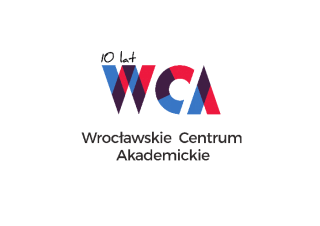Registration is closed.
Register nowAbout the conference
ICGI is a conference on all aspects of grammatical inference, including (but not limited to) theoretical and experimental analysis of different models of grammar induction, and algorithms for induction of different classes of languages and automata.
This year the conference will be held in a collocation with a cyclic conference organized by the Polish Bioinformatics Society (http://ptbi2018.pwr.edu.pl).
Colocated with ICGI 2018 is also a competition about grammatical inference. More detailed information will be available in the near future. Previous editions are described on the website: grammarlearning.org
Scope and objective
The conference is on grammatical inference: the field of machine learning applied to discrete combinatorial structures such as strings, trees or graphs. The conference seeks to provide a forum for presentation and discussion of original research papers on all aspects of grammatical inference including, but not limited to:
- Theoretical aspects of grammatical inference: learning paradigms, learnability results, complexity of learning.
- Efficient learning algorithms for language classes inside and outside the Chomsky hierarchy. Learning tree and graph grammars. Learning distributions over strings, trees or graphs.
- Grammatical inference from strings or trees paired with semantics representations, or learning by situated agents and robots.
- Theoretical and experimental analysis of different approaches to grammar induction, including artificial neural networks, statistical methods, symbolic methods, information-theoretic approaches, minimum description length, complexity-theoretic approaches, heuristic methods, etc.
- Novel approaches to grammatical inference: induction by DNA computing or quantum computing, evolutionary approaches, new representation spaces, etc.
- Successful applications of grammatical inference to tasks in natural language processing such as unsupervised parsing, bioinformatics, web interface design, robot navigation, machine translation, pattern recognition, language acquisition, software engineering, computational linguistics, spam and malware detection, cognitive psychology, etc.
Conference chairs
-
Olgierd Unold, Wrocław University of Science and Technology
http://olgierd.unold.staff.iiar.pwr.wroc.pl -
Witold Dyrka, Wrocław University of Science and Technology
http://www.kotulska-lab.pwr.wroc.pl/websites/wdyrka/ -
Wojciech Wieczorek, University of Silesia in Katowice
http://wwieczorek.us.edu.pl
Program committee
-
Borja Balle Pigem
https://borjaballe.github.io -
Leonor Becerra-Bonache
http://perso.univ-st-etienne.fr/bele8436/ -
François Coste
http://www.irisa.fr/symbiose/francois_coste -
Rémi Eyraud
http://pageperso.lif.univ-mrs.fr/~remi.eyraud/ -
Matthias Gallé
http://www.europe.naverlabs.com/NAVER-LABS-Europe/People/Matthias-Galle -
Jeffrey Heinz
http://udel.edu/~heinz/ -
Menno van Zaanen
https://www.tilburguniversity.edu/webwijs/show/m.m.vanzaanen.htm -
Sicco Verwer
http://www.cs.ru.nl/~sicco/ -
Ryo Yoshinaka
http://www.iip.ist.i.kyoto-u.ac.jp/member/ry/ -
Colin de la Higuera
http://pagesperso.lina.univ-nantes.fr/~cdlh/ -
Olgierd Unold
http://olgierd.unold.staff.iiar.pwr.wroc.pl -
Witold Dyrka
http://www.kotulska-lab.pwr.wroc.pl/websites/wdyrka/ -
Wojciech Wieczorek
http://wwieczorek.us.edu.pl -
Jose Oncina Carratalá
http://www.dlsi.ua.es/~oncina/index_en.html
-
José M. Sempere
http://users.dsic.upv.es/~jsempere/ -
Ricard Gavaldà
https://www.cs.upc.edu/~gavalda/ -
Karl Meinke
http://www.csc.kth.se/~karlm/ -
Henning Fernau
https://www.uni-trier.de/index.php?id=49861 -
Etsuji Tomita
http://www.etlab.ice.uec.ac.jp/~tomita/index_e.html -
Falk Howar
http://falkhowar.de/ -
Frits Vaandrager
http://www.cs.ru.nl/~fvaan/ -
Thomas Zeugmann
https://www-alg.ist.hokudai.ac.jp/~thomas/eindex.html -
Ute Schmid
http://www.uni-bamberg.de/kogsys/schmid -
François Denis
http://www.lif.univ-mrs.fr/~fdenis -
Baptiste Jeudy
http://labh-curien.univ-st-etienne.fr/~jeudy/ -
Antonio Javier Gallego Sánchez
http://www.dlsi.ua.es/~jgallego/ -
Artur Jeż
http://www.ii.uni.wroc.pl/~aje/
Organization committee
- Roman Ptak, Wrocław University of Science and Technology
- Agnieszka Kaczmarek, Wrocław University of Science and Technology
- Łukasz Culer, Wrocław University of Science and Technology
- Mateusz Gabor, Wrocław University of Science and Technology
Founders
